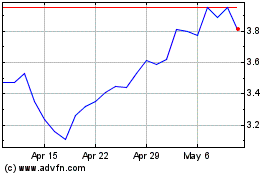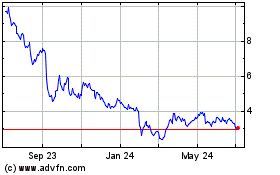Relapse in Sovereign Downgrades Reflect Global Growth in Low Gear, IHS Says
May 10 2016 - 5:30AM
Business Wire
Downgrades more than double upgrades; Some good news as
Southeastern European ratings edge upwards despite refugee
challenges and Greece’s problems
IHS Inc. (NYSE: IHS), the leading global source of critical
information and insight, today announced findings from its first
quarter sovereign risk review.
“The first quarter of 2016 marked a clear relapse in the balance
of global rating downgrades and upgrades, with downgrades three
times the number of upgrades,” said Jan Randolph, director of
sovereign risk at IHS Global Insight. “Overall, 49 countries
received downgrades to 16 upgrades.” Energy exporting countries
such as Angola, Azerbaijan, Bahrain, Congo, Gabon, Kazakhstan,
Nigeria, Saudi Arabia and Oman were downgraded in the first
quarter.
The quarterly IHS Sovereign Risk Review compares and assesses
every sovereign nation worldwide across ratings agencies and fills
in the industry’s long-neglected market space of short-term
sovereign credit risk.
Brazil, Saudi Arabia, and Azerbaijan highlight downgrades in
Q1
“Brazil isn’t likely to see the light at the end of the economic
tunnel until 2017 at the earliest,” Randolph said. “Prolonged
recession, painful fiscal and monetary adjustments and
deteriorating debt ratios, all compounded by a scandal-related
fractious Presidential impeachment process, have all served to
undermine Brazil's investment grade status.”
Azerbaijan and Nigeria: Contrasting policy responses to "low
oil for longer"
“Both Azerbaijan and Nigeria have been hard hit by the oil price
decline shock, but the two countries could not have responded more
differently,” Randolph said. “Azerbaijan has taken a good fiscal
approach, is reassessing spending, and is really trying to restore
its position. Nigeria has gone on the defensive. It has yet to
remove all oil-related subsidies and has heavily intervened in the
currency market to defend the naira, wasting foreign exchange
reserves in the process.”
Until Nigeria adopts a policy approach more like Azerbaijan's
and, more recently, like Angola's, the International Monetary Fund
(IMF) is unlikely to engage with the country should its support
become needed, according to the latest IHS report.
Bright spot: Southeastern European ratings edge
upwards
Several countries in Southeastern Europe have seen rating
upgrades, including Albania, Serbia, Bosnia-Herzegovina and
Romania. These upgrades have come despite the proximity of ongoing
travails in Greece and the heightened refugee challenges.
Both Albania and Serbia, in particular, have new governments
with re-energised reform zeal, clearly marking out a policy reform
pathway towards closer engagement with the European Union (EU) and,
eventually, hoped-for membership of the bloc. In the first quarter,
IHS upgraded both the medium-term and the short-term ratings for
Albania by one notch. The changes were driven by strong foreign
direct investment inflows in 2015 (especially the Trans-Adriatic
pipeline and hydro-electric power projects), the repayment of
government arrears, and continued success in meeting IMF targets
since 2014.
Serbia, too, has been reforming its economy and administration
to comply with the EU's long list of membership requirements. With
an IMF stand-by programme in place, the policy anchors have served
to help to narrow external and internal deficits, restrain debt
build-up and offer decent GDP growth.
Ireland and Iceland: Remarkable turn arounds
“Ireland's remarkable turnaround since exiting the bailout in
December 2013 has seen further rating upgrades lift it higher up
the investment grades as strong underlying GDP (gross domestic
product) growth and a tight fiscal position have meant the public
debt metrics have fallen significantly,” Randolph said.
In Iceland, capital controls are now being lifted as economic
recovery has progressed and financial stability is returning to
Iceland's much-downsized banking sector and debt and currency
markets. “The positive outlook on the IHS upgraded Icelandic rating
suggests that our next rating action is likely to be upwards,”
Randolph said. “Further progress on capital control liberalization,
and a continuation of the economic recovery and improvement in the
public finances, are likely to result in a new upgrade over the
coming quarters.”
About IHS (www.ihs.com)
IHS (NYSE: IHS) is the leading source of insight, analytics and
expertise in critical areas that shape today’s business landscape.
Businesses and governments in more than 140 countries around the
globe rely on the comprehensive content, expert independent
analysis and flexible delivery methods of IHS to make high-impact
decisions and develop strategies with speed and confidence. IHS has
been in business since 1959 and became a publicly traded company on
the New York Stock Exchange in 2005. Headquartered in Englewood,
Colorado, USA, IHS is committed to sustainable, profitable growth
and employs nearly 9,000 people in 33 countries around the
world.
IHS is a registered trademark of IHS Inc. All other company and
product names may be trademarks of their respective owners. © 2016
IHS Inc. All rights reserved.
View source
version on businesswire.com: http://www.businesswire.com/news/home/20160510005739/en/
IHS Inc.Amanda Russo, +44 208 276
4727Amanda.Russo@ihs.comorKatherine Smith, +1
781-301-9311Katherine.Smith@ihs.comorPress Team, +1
303-305-8021press@ihs.com
IHS (NYSE:IHS)
Historical Stock Chart
From Mar 2024 to Apr 2024

IHS (NYSE:IHS)
Historical Stock Chart
From Apr 2023 to Apr 2024
